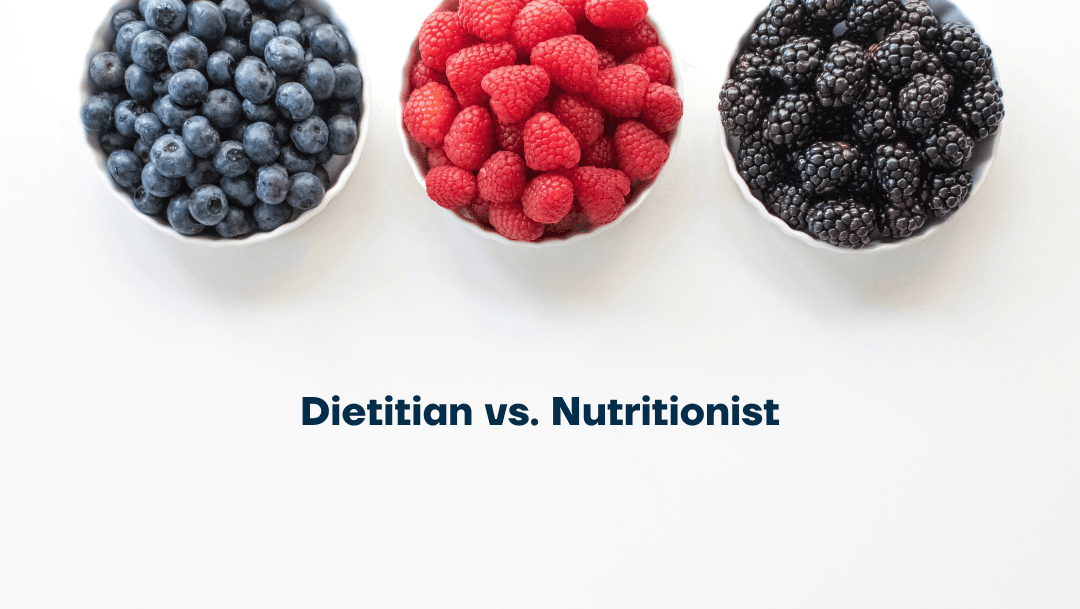All Categories
Featured
Table of Contents
The sorts of Nutritional experts are: and. The previous are those individuals who use the clinical technique to research nutrients, both as individual substances and as they engage in food and nourishment while the latter are specialists who help in diagnosing the nutritional problems of neighborhoods and in discovering services to those troubles.
: They function with health cares and international wellness organizations.: They are accountable for large food preparation and service.: They are experts in nutrition and aging. They are Board accredited in Gerontological Nourishment with the American Dietetic Association.: They are mainly involved with dietary associated research study in the medical facet of nutrition in condition states, public aspect on key, additional and often tertiary health avoidance and foodservice facet in problems involving the food gotten ready for patients.
How Do I Choose A Registered Dietitian For Weight Loss Service?
: These function as resource individuals for the media. Dietitians' know-how in nutrition is commonly taped for TV, radio, and newspapers-- either as a professional visitor opinion, normal columnist or guest, or for source, dining establishment, or dish development and critique.: These job under exclusive technique. As clarified over, all dietitians are nutritional experts yet not all nutritionists have the credentials and qualifications to be called dietitians.
This means exactly the very same thing as Registered Dietitian (RD), a term that has actually been in usage for a lengthy time. While certification to end up being an RD or RDN is controlled by the Academy of Nourishment and Dietetics a national organization licensure is controlled by individual states.

In order to give clinical nourishment therapy and certify as suppliers for insurer, a dietitian must be accredited by the state. According to the Bureau of Labor Stats, the demand for dietitians and nutritionists is anticipated to enhance by 20% between 2010 and 2020 this is a much faster growth price than the standard for all occupations.
How Much Should I Pay For Dietitian For Weight Loss Services?
There are significant differences in payment based upon field of expertise, with Medical Pediatric Dietitians and Milk Nutritionists averaging around $90,000. In 2014, The Bureau of Labor Statistics (BLS) found that the leading 10% of dietitians and nutritionists earn even more than $79,000, and the bottom 10% much less than $36,000 - Certified Nutritionist. A mean per hour wage of $27.62 was computed for both markets, with the top 10% earning above $38.00 per hour, and the bottom 10% earning listed below $17.00 per hour

However, there is a range of tasks readily available in different settings for those who wish to work with the general public, as well as for those that like more research-focused employment. Several enter into one of these fields in order to assist people live healthier lives which can be tremendously fulfilling.
With current statistics that one-third of the united state populace is overweight, in addition to a lot of elderly U.S. homeowners, dietitians and nutritionists are most likely to have an extra extensive duty in the future. My Strategy rates dietitians and nutritional experts at # 53 in their joy index of leading 300 jobs with the highest possible job contentment scores.
In enhancement to attending an accredited program, the majority of states call for dietitians to be certified or to have specialist certification, or both.
How Do I Find A Holistic Dietitian Service?
Nonetheless, it is essential to note that beginning Jan. 1, 2024, you'll likewise require to hold a master's degree to gain an RD/RDN credential. Typical bachelor's degrees for dietitians include medical nutrition, dietetics, and public wellness. Your core courses might include: Food scientific research Chemistry Healthcare plan Scientific nutrition Biostatistics Microbiology Food service monitoring You'll additionally need to finish a dietetic internship.

And to advance in the field, you'll likely need a master's degree. Whether written in regulation or not, dietitians and nutritionists lots of times require a comparable education. Usual bachelor's levels for nutritionists include nutrition scientific research or a relevant self-control, such as dietetics, kinesiology, food system administration, or biochemistry. Some of your courses may consist of: Patterns in nutrition Biomedical data Professional nutrition Food, nutrition, and actions Nutritional ecology Community nourishment Physiology Some degree programs consist of teaching fellowships, but in others you'll have to find opportunities on your very own.
The variety of hours you'll require might depend on demands in the state where you'll work. Whether you prepare to make a credential or not, it's a good idea to complete a minimum of one teaching fellowship to get beneficial experience prior to looking for a permanent role. Licensing and certification needs for nutritional experts and dietitians vary from one state to another.
What Is The Best Accredited Sports Dietitian?
An expert qualification demonstrates your proficiency and understanding in your field. Here are the leading qualifications for dietitians and nutritionists.
The titles are essentially the exact same. There's no expert difference in between them, and you're totally free to pick which one you want to utilize based on personal choice. To take the qualification test, you should: Earn a bachelor's degree that's approved by the ACEND Complete a dietetics teaching fellowship After Jan. 1, 2024, you'll require to earn a master's level to certify for the accreditation.
How Do I Find A Affordable Nutritionist Service?
Bureau of Labor Stats places dietitians and nutritionists in the exact same classification and states they make a average annual salary of $69,680. But there is an array in incomes, with the bottom 10% around $44,910 and the top 10% around $98,830, according to the BLS. Nutritionist and dietitian duties are expected to grow 6.6% with 2032, according to the BLS.
This doesn't indicate that profession transcends to the other, as they both have different functions and qualifications that could often overlap. If you intend to discover more concerning what makes these occupations distinctive, keep reading. Diet professionals are specialists who aid improve the lifestyle through healthy and balanced food choices.
What Is The Best Holistic Nutritionist Company Near Me
Nutritional expert recommendations concerning nourishment's effect on wellness. The field is less regulated than dieticians; thus, nutritionists' levels of proficiency and certifications can vary.
There are a number of differences in between dieticians and nutritionists. Here are the training and background specs. Dieticians commonly hold a bachelor's degree in dietetics, nourishment, or an associated field. As their jobs breakthrough, lots of diet professionals seek postgraduate degrees, like a Master's or Doctorate, to specialise in particular areas of nutrition. Dieticians need to undertake supervised sensible training as component of their education and learning to acquire hands-on experience in clinical setups, area nourishment programs, or food solution administration.
Latest Posts
What Do Accredited Sports Nutritionist Services Include?
Dietitian (Munster)
Weight Loss Support – Joondalup